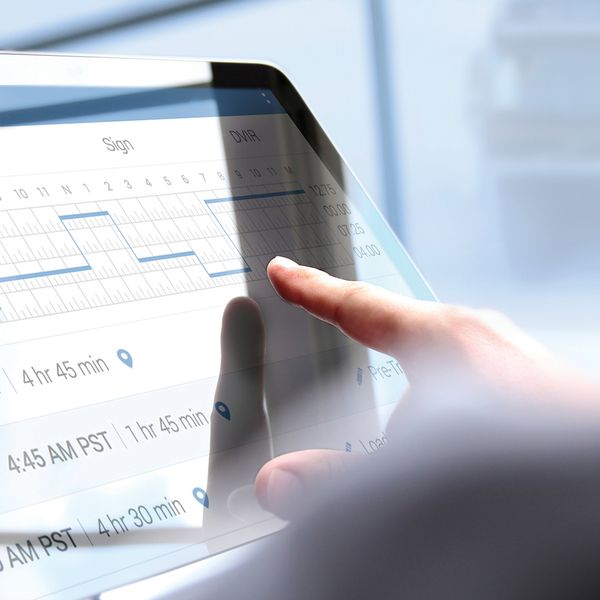Do license plates need an upgrade?
Technology fans may have a fancy new item to add to their wish list this year — electronic license plates. A few states already allow their use, but the idea of these digital plates may raise questions and concerns from motor carriers and their drivers. In fact, when federal regulators recently asked for feedback on the idea of requiring unique electronic identifiers on large trucks, the overwhelming majority of commenters were against the idea.
With some groups touting the benefits of electronic tracking devices and others declaring the dangers, this will be an interesting area to watch.
What are digital plates?
Digital plates involve a license plate-sized screen that displays a driver’s license plate number. They are available as battery-powered units or hard-wired to vehicle systems. The cloud-based technology may also include an app to customize the plates with various banners. Light and dark modes are said to increase visibility compared to metal plates. Each plate may also include a global positioning system (GPS) tracker.
Potential benefits
The systems may offer some benefits over traditional plates. Vehicle registration renewal could be automated, and plates could be programmed to pay tolls and parking.
Some digital plates feature the ability to flash additional messages, for example, if a vehicle is stolen or if an Amber Alert is issued.
Built-in tracking abilities may help in locating stolen vehicles.
Potential drawbacks
The technology may come with some drawbacks. Electronic plates must be purchased from a private company. A subscription is also required, significantly increasing the expense over traditional plates. While a battery-powered version can be installed by the user, professional installation is necessary for the hard-wired units. Durability may also be an issue, as one can imagine when attaching an electronic device to the bumper of a truck.
These plates are controlled and monitored by remote systems, making them vulnerable to cyberattacks and data security issues. The ability of the GPS to track vehicle location and mileage may also raise concerns related to driver’s rights under privacy laws.
Key to remember: Several states already allow the use of electronic license plates, and more are considering the option. Ultimately, carriers will need to weigh the benefits against the potential risks that come with these devices to decide whether to go with the upgrade.






















































